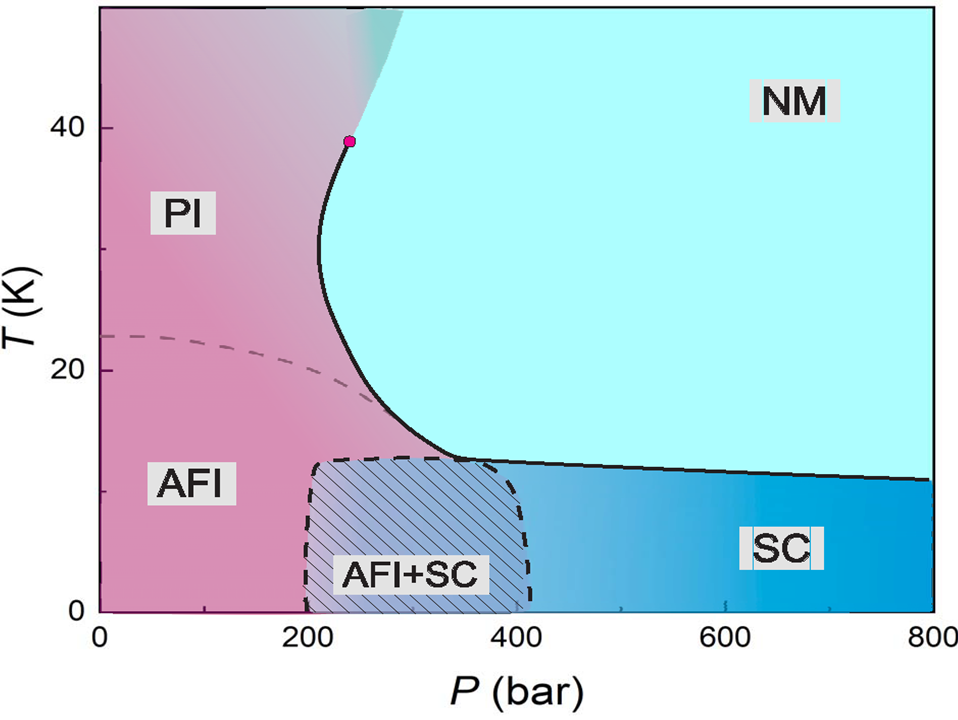Evolution of the charge carrier properties and electronic correlations in layered organic metals near the Mott metal-insulator transition
The Mott transition is one of the most fundamental correlation-driven instabilities in normal metals. Despite extensive studies, there are important unresolved problems and open questions, in particular regarding the experimental study of the metallic ground state in the immediate vicinity of the insulating state in well-defined model systems.
Within this project, we join experts from experimental and theoretical physics and materials science to tackle these problems. We will employ kappa-type organic charge transfer salts as quasi-2D electronic model systems with bandwidth-controlled Mott instability for tracking the evolution of key characteristics of the charge carriers in the metal/insulator coexistence region of the phase diagram as well as in the neighboring homogeneous metallic state. In particular, we will study (i) the correlation-induced renormalization of the effective mass, (ii) the exact geometry and topology of the Fermi surface, and (iii) the coherence of charge transport. The systematic study of these characteristics in well-defined model systems will provide a crucial test for the existing theories of the Mott metal-insulator transition.A key objective of the project is the disentanglement of contributions of charge, spin, and lattice degrees of freedom to the metal-insulator instability. This problem will be addressed by studying kappa-type salts with different strength of geometrical frustration, magnetic interactions, and lattice disorder. The salts of BEDT-TTF with different anions are particularly suited for studying the effects of geometrical frustration, while BETS salts with localized magnetic moments give access to the interplay between electronic correlations and magnetic interactions. The coupling of the electronic state to lattice degrees of freedom will be probed by studying the influence of deuteration of BEDT-TTF salts on the charge carrier properties and by tracing the impact of ethylene-group disorder in these salts.The main experimental probes for addressing the above issues will be magnetic quantum oscillations, semiclassical anisotropic magnetotransport, and resistivity anisotropy. A precise control of the electronic ground state with respect to the metal-insulator boundary will be realized by fine-tuning materials with quasi-hydrostatic pressure as well as "chemical pressure". A quantitative analysis of the experimental results will be carried out by the theory team involved in the project using the state-of-the-art theory of high-field magnetotransport in quasi-2D metals as well as of the charge transport in phase-separated electronic media. Further development of the (magneto)transport theory in the segments related to the proposed experiments is planned.The availability of top-quality single crystals of kappa-type salts is crucial for the success of the planned project. The preparation and characterization of such crystals will be carried out by the experienced materials science team of the project.

